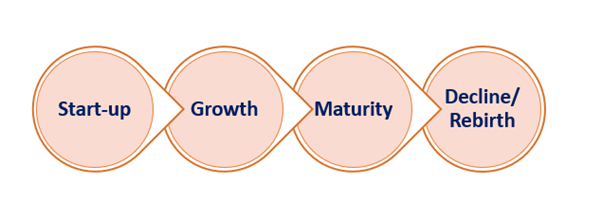Summary
- Across the world, the Banking sector is one of the hardest hit by the pandemic and its economic ramifications.
- Major Australian banks have made large scale credit provisions in the wake of a crisis that has impacted their ability to pay dividends.
- Australia is embarking on a new journey with extensive policy reviews underway to make the best out of the crisis.
Banks, not only in Australia but across the board, have been hammered by bears. This reflects in the fact that the MSCI World Banks Index being down 21.3% over the past three months at the end of May 2020. As its constituents, it counts some of the largest banks around the world like Citigroup, JP Morgan Chase, HSBC Holdings, Royal Bank of Canada, Commonwealth Bank of Australia.
Since banks are highly cyclical and sensitive to economy, it is reflected in the share prices of banks that are down significantly compared to their pre-COVID levels. But mainstream ASX banks were already running into troubled waters, owing to repercussions of Hayne Royal Commission.
In late January this year, the Australian Prudential Regulation Authority (APRA) released its supervision and policy priorities for the year. The regulator laid out its agenda for the year extensively. But most of these reviews were postponed further in the wake COVID-19.
For banks, APRA was keen to move with the Basel III consultations with ADIs. It was considering a policy review for the measurement of capital. Policy review also included stored-value facilities framework where the regulator was going to review its approach to regulating Purchased Payment Facilities.
Among its supervision priorities, the regulator was going to supervise the progress made by banks in the identified risks through self-assessment in relation to Governance, Culture, Remuneration and Accountability (GCRA).
Divestments and reinventing the business
A business usually has four stages of life cycle, which includes start-up, growth, maturity, and decline/reinvention/rebirth. The big four banks of Australia have certainly attained maturity and are growing consistently with needs of the economy.

Major banks of the country are also actively divesting non-core businesses, which helped these banks to become so large and powerful. Perhaps big four banks made their presence in almost every aspect of core financial services, including insurance, asset management and wealth management during the hay days.
But the days of utter dominance and engulfing every competition that comes on the way are certainly receding. Having a large-scale, highly complicated, money-making machine by-all-means could be good for investors, but Hayne Royal Commission extensively revealed the adverse backdrops.
A series of class actions, enforcement actions, fines, remediation etcetera have followed since the Royal Commission. And, the big four banks have been divesting businesses that are not material to their non-interest income.
Major banks are increasingly reinventing their purpose and sticking to the core aspects of their value chain, which is savings and lending. Royal commission has also prompted banks to revisit their fees structures, which would also impact income.
Nevertheless, the short term pain of foregoing the additional income from non-core banking businesses will likely position major banks with lesser risk and sustainable long-term growth.
Lower interest rates for longer
Over the past year, the Reserve Bank of Australia (RBA) has lowered interest rates multiple times. A lower interest rate on government securities as well as trading debt securities means a lower interest income from these asset classes. Also, interest rates cut by Central Bank are followed by lower lending rates, which require deposit rates to be adjusted as well.
A higher interest rate environment enables the banks to fetch better interest rates on loan advances. Lower interest rate scenarios impact banks net interest income margins, which are also intensified on account of growing competition.
Negative interest rates, which could be detrimental for banks, are denied by the top brass of the RBA, and it may not be favourable for the economy to slide into negative interest rates. Reserve Bank also expects to maintain current interest rates as long as it does not see any risks to its mandate, which is stable prices and maximum employment.
COVID-19 economic fallout
The stringent actions taken by the government to tackle COVID-19 pandemic is perhaps the factor that is largely responsible for free fall in share prices of banks. COVID-19 has induced banking companies to report large scale forward-looking credit provisions, which are dependent on uncertain economic variables.
Australia has been largely successful with its containment efforts to keep the spread of virus minimal, but the recent uptick in new infections in Victoria should be dealt with utmost efficiency to prevent further outbreaks.
Businesses have been disrupted, and people have lost jobs, There is a high probability that liquidations are going to increase as we go further into the crisis, which has forced banking companies to create large credit provisions for the areas that are facing stress due to crisis.
In part, these large scale credit provisions have also dented the dividend paying capabilities of major banks. Investors have been left anxious as a few major banks put breaks on their dividends in the previous half-year.
The silver lining is that recession has not been as hard as it was thought earlier, and Australians are embracing the gradual re-openings in the economy. A resumption of economic activity bodes well for the banking companies in the country as well as other credit providers.
But this silver lining comes with an immense uncertainty as the virus is still creeping in parts of country, and minimising the threat of second wave, a possible country-wide lockdown will likely be favourable for the economy as well as banks.
Non-financial risks
In recent years, major banks might have lost more money due to non-financial risks rather than financial risks. These risks include non-compliance with rules, over dated processes, lack of integrity, misconduct, operation or technological failures etcetera.
Non-financial risks hurt through litigation, compensation claims, and reputational damage. Hayne Royal Commission was mostly concerned with non-financial mishaps, which later turned to financial mishaps via compensation, litigation and remediation.
These risks not only damage the banks financially, but they also impact the shareholders of the banks in some ways. Such failures in banks prompt investors to question the business model of the bank as well as management.
It is very favourable to flourish a culture in an organisation that makes the team members responsible and accountable for their actions, and, the acceptance of such a culture across the organisation is even more important.
Risk management, especially non-financial risk management, has solidified its position in the eyes of bank Boards, regulators, and stakeholders. On back of this, the Australian banks are revisiting their operational capabilities to enhance the non-financial risk management culture in the system.
Bottomline
The pandemic and its economic ramifications have surely impacted banks, but the Australian economy is reopening gradually. Policymakers are inclined to do more, and the emphasis will likely be on creating more jobs in the economy.
Tax reforms in the Australian economy are desired by most alleys of the economists in the country. GST in Australia has marked twenty years, and there is much need for the reforms in the tax structure. More so, corporate tax reforms in Australia could well unleash the animal spirits of Corporate Australia.



